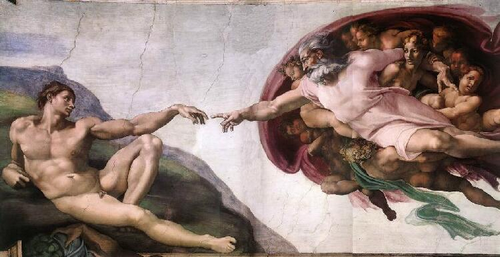History of Psychology

Now turn back the time machine and go on an exciting journey through the corridors of the past. In such an interesting topic as the history of psychology. Psychology from the Greek language is the science about the soul. Of course, it is absolutely wrong the view that as a science, psychology has its roots from a respected master of Sigmund Freud. (Why is it many people with the name of this prominent psychologist associate psychology)
Of course, psychology was long before Freud, and in general just psychology is the science of the soul and the soul have always been, from the very moment, as the biblical legend of God breathed the soul into the first man Adam. And always there were people who wanted to explore what is there is this mysterious soul of man. These people were the first psychologists, psychology, and therefore the most ancient of sciences. These early psychologists were still living in the Stone Age, in between hunting for mammoths and bears, were engaged in research mysteries of the human soul. Those who managed to touch and to unravel the great mystery of the soul in great esteem. In different places of the researchers named in different ways: by shamans, priests, wise men, the Druids, the Brahmins.
For centuries, psychology has been inextricably linked with religion, and it is not surprising, because the human soul according to all world religions, created in the image and likeness of God. Department of Psychology of religion just happened in ancient times in Greece. There appeared the first psychologists, researchers of the human soul, which were only philosophers, but not priests. There, in the silence of the majestic Greek temples, was the establishment of psychology as an academic secular science. Aristotle is considered the grandfather of psychology with his treatise “On the Soul.” Although a much greater contribution to its development was made by the other major Greek philosophers Plato and his teacher Socrates.
That only is a brilliant phrase of Socrates: “Learn yourself.” In these few words the essence of psychology. Numerous thick of psychologists from different times, from ancient psychology of Aristotle and Hippocrates to modern transpersonal psychology by Stanislav Grof, – just a commentary on these two words.
Interestingly, in the east, where prevailed the teaching of the Buddha and Buddhism, the branch of psychology from religion did not take place, and the Buddhist monks and lamas, were part-time psychologists. The same is seen in the days of medieval Europe, when the psychological teachings of ancient philosophers were offset by a hard roller Christian dogmatic Catholic doctrine. In medieval times to think and do things to explore (especially the human soul), was very dangerous, who was doing it, risked much to get into the clutches of the Inquisition, for theirs is a heretic. Monopoly on the psychology had only the priests. A major psychological process for many centuries was the confession, when the person confessing sins to a priest, as if relieved from his mental burden.
The revival of secular psychology as science began in the 18-19 centuries. If the science of psychology is considered the grandfather of Aristotle that her dad is a German psychologist Wilhelm Wundt. In 1879 Wundt opened the first psychological laboratory in the world. This date is considered the birth of modern psychology as a science. But the real breakthrough in modern psychology has occurred in the early 20th century through the work of the famous psychologist of all time – Sigmund Freud. Freud in his studies of the human soul, opened this interesting and important thing as the subconscious, and became the founder of the first methods of psychotherapy – psychoanalysis. Freud had many disciples, and as often happens, some of his students greatly surpassed his teacher, and created their own directions in psychology. The most famous of his pupils was Carl Gustav Jung and Albert Adler. They all began with a frank enthusiasm Freud’s ideas, then in their studies were further developed and supplemented (and in some ways denied) the teaching of Freud.
As for me, the most interesting as a psychologist in modern psychology is Carl Gustav Jung. Opening of Freud’s unconscious, he added significantly. As it turned out the subconscious can be both individual and collective. Then the fun begins, because the collective unconscious or the collective unconscious, it is universal knowledge of mankind, laid down in the depths of our souls. This knowledge (some of them still calls “the memory of our ancestors”) are reflected in the numerous symbols, myths, fairy tales, legends of different peoples.
Jung is very much engaged in the study of those tales, myths, legends, looking at them Keys, hints for understanding the complex and enigmatic nature of the human soul. In the next article we’ll go in the footsteps of Young, in Greek mythology, rich in fascinating myths. Among the myths, there is one very interesting. He said: “The myth of Psyche” (Psyche – the soul) from the title immediately clear what that myth.
P. S. Spirits are talking: In our time we have a lot of book about psychology, some of them are very interesting and useful. And even more, most of them you can find among free ebooks, so they available for everyone who seeking wisdom.